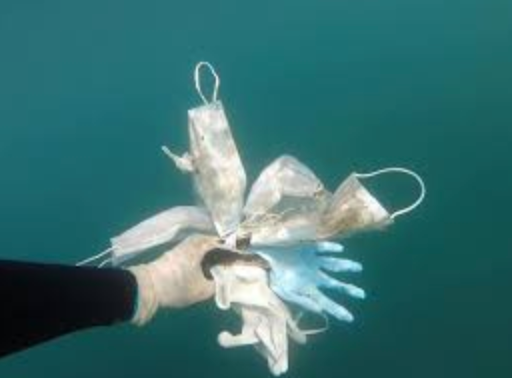Face Masks Posing Threat to the Environment

by Amanda Lo ‘21
When coronavirus began surging through the world last year, people rushed to purchase face masks, disinfectant, and gloves from every store. After nearly a year, the waste produced as a result of coronavirus has piled up throughout the environment, which is proving to be disastrous.
The World Health Organization (WHO) estimated another 89 million disposable masks were needed globally per month. In France, 2 billion disposable masks have been bought. To add to the list, latex gloves are being bought at an exponential rate.
On average, 13 million tons of plastic end up in the ocean annually. Recently, an abundance of masks have been discovered washing up on the beaches in Britain and 70 masks were found within 100 meters of a beach in Hong Kong. The impact that coronavirus waste has on the environment is detrimental when not properly disposed of. For insight, a disposable mask takes 450 years to decompose, and 94 million face masks are being thrown away every week. Both land and marine animals have mistaken face masks for food, consuming or choking on the litter. Pictures of birds with their feet trapped in the straps of a mask were spread on environmental advocacy accounts such as @savethereef and @karmagawa on Instagram. The environmental effects of coronavirus will last generations as a serious environmental disaster. The decomposition of masks in oceans will produce even more microplastics in marine animals and may eventually end up in the human body through consumption.
Raising awareness and encouraging the public to invest in reusable and washable face masks and trade latex gloves in for frequent hand washing will greatly benefit the state of the environment and minimize human impact on the environment. Snip the straps of your mask when you are done using it, and don’t litter or recycle your masks. Instead, dispose of your mask in the trash and make sure it will stay there.